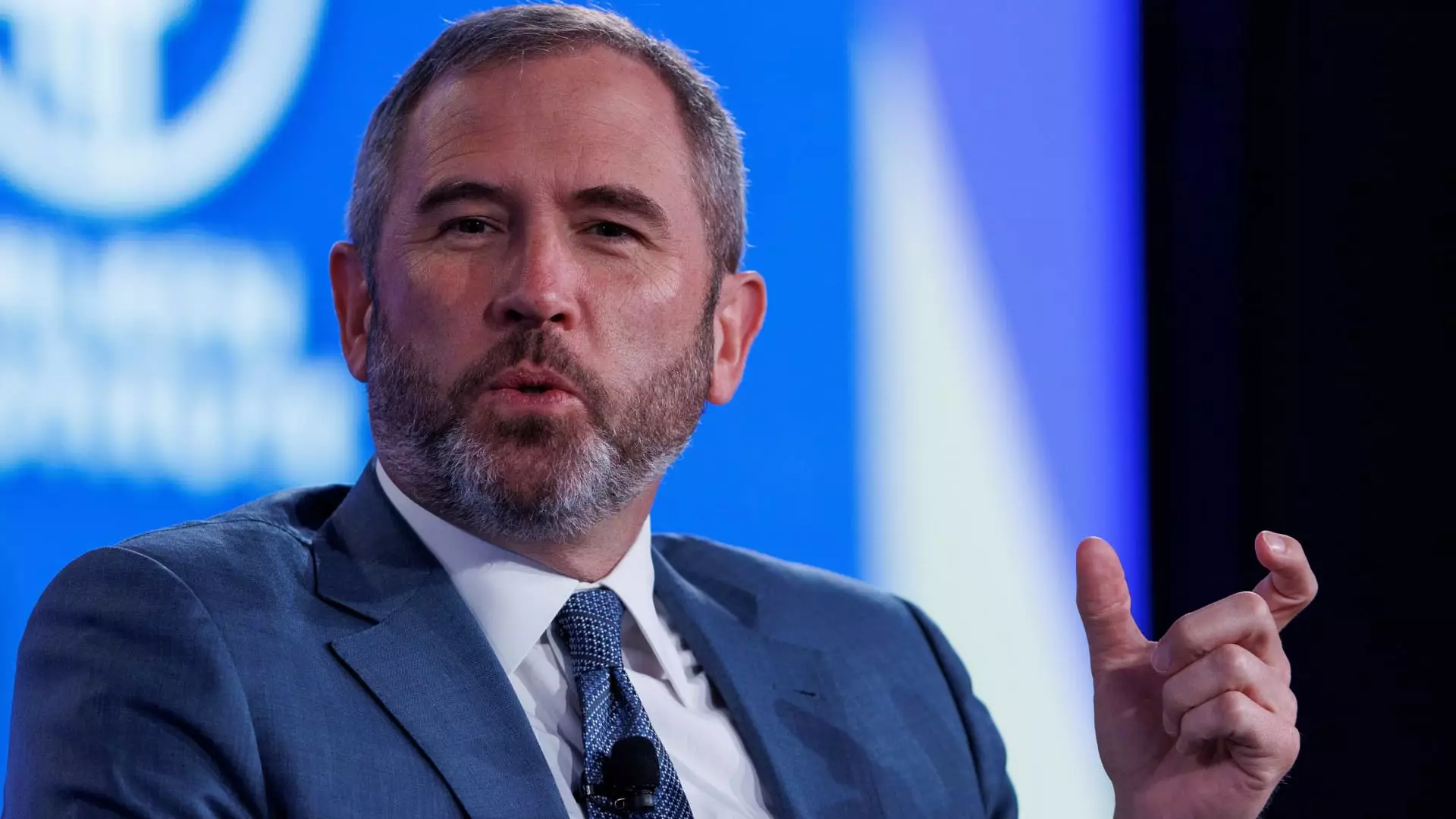The cryptocurrency landscape has undeniably witnessed one of its most pivotal moments with Ripple’s recent victory against the Securities and Exchange Commission (SEC). Initially embroiled in legal turmoil for nearly four years—stemming from accusations that Ripple illegally raised $1.3 billion through the sale of its XRP token without proper registration—the SEC’s decision to drop the case signifies a profound shift in the regulatory paradigm. This not only benefits Ripple but resonates throughout the entire crypto industry. Ripple’s triumph has generated renewed hope and vigor among crypto advocates and businesses, previously stifled under an oppressive regulatory regime.
As the SEC officially relinquishes its case against Ripple, industry insiders and observers cannot help but feel a sense of relief. Ripple’s Chief Legal Officer, Stuart Alderoty, characterized this development as a landmark victory for the entire crypto sector, portraying Ripple as the single entity that stood its ground against the SEC’s seemingly unyielding approach to enforcement in the United States. This judgement not only challenges the agency’s previous strident methodologies but also places Ripple in a unique position as a harbinger of change. Their success in this case stands as a testament to the potential for reversal in what many perceived as an unbalanced playing field.
Ripple’s Sustained Battle Against Regulatory Overreach
Ripple’s long and financially exhausting legal battle, which saw the company spend approximately $150 million defending against SEC accusations, can be understood as a microcosm of the crypto industry’s struggles to navigate an increasingly hostile regulatory landscape led primarily by former SEC Chairman Gary Gensler. Notably, a key ruling in July 2023 declared that XRP could not be deemed a security “on its face,” significantly undermining the foundation of the SEC’s case.
Ripple’s resilience, coupled with the inferred message from the ruling, has catalyzed a wave of optimism throughout the sector, suggesting that the SEC’s overreach may have been ultimately counterproductive. Instead of instilling a sense of fear, it has galvanized crypto businesses to push back against enforcement actions they deemed arbitrary and punitive.
It’s also interesting to recognize the broader societal implications of this legal saga. The confluence of Ripple’s victory and Trump’s renewed engagement with the crypto community suggests an era of potential coalescence between politics and innovation, positioning the U.S. as a potential crypto capital on the world stage. The implications of executives and influencers rallying around the cryptocurrency narrative, especially in a politically charged atmosphere, will be crucial moving forward.
New Regulatory Dynamics: Engagement Over Enforcement
The SEC’s recent initiatives portray a transformative shift in its relationship with the crypto sector. The establishment of a Crypto Task Force, led by Commissioner Hester Peirce, signifies an intention to open avenues for constructive dialogue and collaboration rather than a strictly adversarial approach. This appears to indicate that the SEC is pivoting towards creating a regulatory framework designed to foster innovation rather than stifling it under the weight of bureaucracy and aggressive enforcement actions.
Perhaps even more telling is the recent rescission of controversial policies like Staff Accounting Bulletin 121, a rule imposed under Gensler’s guidance that treated crypto assets unfavorably for institutional banking practices. Such strategic reversals send ripples of confidence through the markets, suggesting a more favorable climate for institutional adoption of digital assets moving forward.
Opportunities abound now that the SEC has seemingly charted a new path—one built on engagement rather than impending legal confrontations. The participation of major financial institutions at events such as the World Economic Forum demonstrates that a thawing in relations might indeed fuel renewed interest and investment in the crypto sphere.
Implications for the Future and Ongoing Struggles
Despite the victory for Ripple, the battle for clear and equitable regulatory frameworks continues. While Ripple’s win may mark the end of a significant chapter, there are still numerous hurdles to clear. As the industry transitions from reactive measures to proactive engagement with policymakers, the emphasis on establishing clarity and fairness in regulation will be paramount.
Furthermore, the fact that other companies such as Coinbase and Kraken have also seen favorable resolutions in their legal circumstances emboldens the notion that the trajectory of crypto regulation may be changing for the better. The sentiment appears to be one of collective empowerment; stakeholders within the crypto sphere are increasingly vocal about their rights and demanding equitable treatment from regulators.
The tides have shifted dramatically in the world of crypto regulation, invigorated by Ripple’s legal victory. It is a salient reminder that resilience and determination can indeed tip the scales in favor of innovation, even in the face of formidable barriers. As the industry’s future takes shape—supported by new regulatory perspectives and an energized political landscape—the essence of entrepreneurship and technological advancement remains irrevocably intertwined with the evolution of the cryptocurrency narrative.


Leave a Reply
You must be logged in to post a comment.